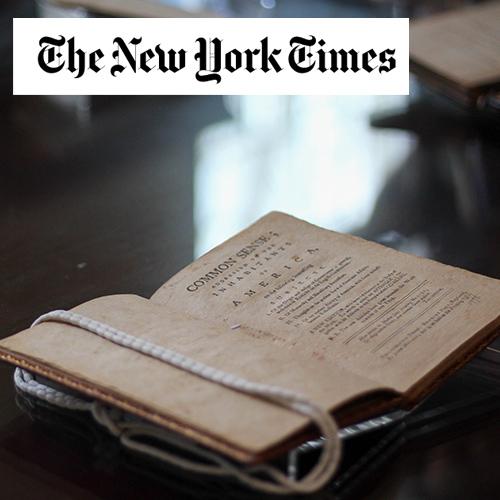Drug-Free Community Policy
Iona University recognizes its duty to uphold existing state and federal laws and inform students and staff about the Drug-Free Schools and Communities Act of 1989. This law, by which the University intends to comply fully, was designed to prevent the illegal use of drugs and the abuse of alcohol by students and staff. Iona is a drug-free school and workplace and the University will not protect any member of the community who violates the law. This represents the complete policy on a Drug-Free Community.
Accordingly, any person discovered on campus by College officials who illegally possesses marijuana, hallucinogens or any other drugs proscribed by state or federal laws, will be subject to sanctions up to and including dismissal from the University. In every case, the drugs found will be turned over to the appropriate governmental authorities, and the person reported to the appropriate governmental authorities. It is a violation of the Code of Conduct to fail to comply with the University’s regulations and state and federal laws governing the possession, distribution and use of illegal drugs. This includes any paraphernalia used to assist in the possession, distribution or use of illegal drugs either on or off campus. Any student arrested by any governmental authority in connection with illegal possession or use of drugs will be subject to disciplinary action pursuant to the judicial procedures of the University as contained in this Handbook.
Should guests, or anyone purporting to be a guest of students or of anyone else in the University community, be actively engaged in the sale, barter, exchange or distribution of an illegal drug on campus, the University will take immediate action by notifying the appropriate governmental authorities. Since the University does not consider itself a “sanctuary” outside the law for its own students, faculty or staff, neither can it be a place of refuge for persons not part of the University community.
New York State penal law states that it is illegal for: persons under the age of 21 to purchase or possess alcoholic beverages with the intent to consume; individuals under the age of 21 to purchase or attempt to purchase an alcoholic beverage through fraudulent means; individuals to furnish alcohol to anyone under 21-years-of-age; individuals to sell, deliver or give away alcoholic beverages to any intoxicated person or any person under the influence of alcohol regardless of the age of the person; and/or individuals to drive while impaired or intoxicated.
Federal law makes it a criminal offense to manufacture, distribute, dispense or possess with intent to manufacture, distribute or dispense, or simply possess a controlled substance. (See Title 21 US Code 801, et. seq. Controlled substances are defined by the schedules contained in 812 of Title 21 of the US code.) New York State penal law makes it a criminal offense to possess, possess with intent to sell or actually sell various drugs. The drugs to which this law applies include marijuana and those listed in the schedules contained in the New York State Public Health Law, 3306 thereof. (See Penal Law Articles 220 and 221.)
The possible sanctions for the violation of federal and state law depend upon the particular offense violated. The various offenses are premised on aggravating factors which include the type and quantity of drugs involved.
Depending upon the particular aggravating circumstances involved, violations of said law could result in sanctions from a monetary fine to life imprisonment.
It is a violation of New York State Penal Law 240.40 for a person to appear in public under the influence of narcotics or a drug other than alcohol to the degree that he or she may endanger himself or herself or other persons or property, or annoy persons in the vicinity. A violation of this law could result in imprisonment up to 15 days.
The University complies with the Higher Education Reauthorization Act Section 484(r) which states:
- (r) Suspension of eligibility for drug-related offenses.
(1) IN GENERAL: A student who has been convicted of any offense under any Federal or State law involving the possession or sale of a controlled substance shall not be eligible to receive any grant, loan, or work assistance under this title during the period beginning on the date of such conviction and ending after the interval specified in the following table:
If convicted of an offense involving:
The possession of a controlled substance, ineligibility period is:
- First offense: 1 year
- Second offense: 2 years
- Third offense: Indefinite
The sale of a controlled substance, ineligibility period is:
- First offense: 2 years
- Second offense: Indefinite
(2) REHABILITATION: A student whose eligibility has been suspended under paragraph (1) may resume eligibility before the end of the ineligibility period determined under such paragraph if:
- (A) the student satisfactorily completes a drug rehabilitation program that:
- i. complies with such criteria as the Secretary shall prescribe in regulations for purposes of this paragraph; and
- ii. includes two unannounced drug tests;
- (B) the student successfully passes two unannounced drug tests conducted by a drug rehabilitation program that complies with such criteria as the Secretary shall prescribe in regulations for purposes of subparagraph (A)(i); or
- (C) the conviction is reversed, set aside, or otherwise rendered nugatory.
(3) DEFINITIONS: In this subsection, the term ‘‘controlled substance’’ has the meaning given the term in section 102(6) of the Controlled Substances Act (21 U.S.C. 802(6)).
The University does report, in the published annual crime statistics, the number of drug and alcohol related incidents and fatalities that occur on campus (as defined in section 485(f )(6)), or as part of any of the institution’s activities; and that are reported to campus officials; as well as reporting the number and type of sanctions described in paragraph (1) (E) that are imposed by the institution as a result of drug and alcohol-related incidents and fatalities on the institution’s campus or as part of any of the institution’s activities.
Students who violate the University’s Alcohol and Other Drug Policy are referred to the Coordinator of Alcohol and Other Drug Education (AODE) Services. The Coordinator meets with students to provide mandated assessment and educational services. Students first have an individual session with the Coordinator to assess the nature and degree of their substance use. Those students, who are first time violators of College policy, are referred to the CHOICES program. Following their assessment session, they are scheduled to attend an educational seminar, which highlights the risks of binge drinking and illicit drug use, and encourages students to adopt healthier behaviors. Students who are repeat offenders of College policy, or whose violation was particularly egregious, are referred to the BASICS program. Following their assessment session, they are scheduled for a second individual session with the Coordinator. This second session is used to provide students with the following: individualized feedback about the nature and risks of their substance use, how their behavior compares to the norm at Iona, and how to adopt safer strategies and avoid alcohol and other drug-related consequences. Students referred to either the CHOICES or BASICS programs are invited to engage in ongoing counseling specific to substance use with the Coordinator, should they so choose.
AODE Services also provides voluntary, ongoing alcohol and other drug counseling, in addition to the brief intervention services described above. Students are referred by a variety of student services offices across the campus, including but not limited to Residential Life, Student Success, Off-Campus Housing, and the Office of Student Development. Some students choose to engage in voluntary counseling following the completion of a CHOICES or BASICS referral, while others seek out the services provided by AODE because of concerns they have about their substance use or the use of a loved one. Those students who engage in ongoing counseling related to their substance use have the opportunity to:
- reflect on their substance use and its function in their lives
- examine a variety of factors which influence their use and are also impacted by their use such as: family, social relationships, trauma, stress, psychological disorders, medical/physical health issues, educational/academic problems, etc.
- develop a plan to increase healthier behaviors to improve overall wellness
- obtain support in executing their wellness plan, as well as, during times of struggle
* Counseling services provided by this office are confidential and within the parameters of the ethical guidelines required of mental health professionals.
** Students who may benefit from more intensive substance treatment are referred to outside treatment providers, as appropriate.
*** The Coordinator provides consultation to parents with concerns about their student’s substance use, within the confines of confidentiality, as appropriate.
In New York State, the penalties for an alcohol or drug-related violation include the loss of driving privileges, fines, and a possible jail term.
Violation: Driving While Intoxicated (DWI)
- Mandatory Fine: $500 - $1,000
- Maximum Jail Term: 1 year
- Mandatory Action Against License: Revoked at least six months (one year if under 21)
Violation: Second Violation in 10 years
- Mandatory Fine: $2,000 - $10,000
- Maximum Jail Term: 7 years
- Mandatory Action Against License: Revoked at least one year (one year or until age 21 if under 21)
Violation: Driving While Ability Impaired (DWAI)
- Mandatory Fine: $300 - $500
- Maximum Jail Term: 15 days
- Mandatory Action Against License: Suspended 90 days (6 months if under 21)
Violation: Second Violation in 5 years
- Mandatory Fine: $500 - $750
- Maximum Jail Term: 30 days
- Mandatory Action Against License: Revoked at least six months
Violation: Third Violation in 10 years
- Mandatory Fine: $750 - $1,500
- Maximum Jail Term: 180 days
- Mandatory Action Against License: Revoked at least one year
It is a violation of New York State Penal Law 260.20 (d) (4) for a person to give or sell an alcoholic beverage to a person less than 21 years old. A violation of this law could result in imprisonment up to three months. Any person who operates, drives or is in control of a motor vehicle while intoxicated (DWI) or impaired (DWAI) is in violation of Section 1192 of the Vehicle and Traffic Law and if found guilty, is subject to fines, imprisonment and license suspension or revocation. The penalties for DWI and DWAI related to this section are listed in the preceding chart.
A drug is a chemical substance that has an effect upon the body or mind. Alcohol is defined as a drug. Drugs and alcohol are capable of impairing judgment and physical capacity and diminishing individual performance in activities of family living. Problems associated with inappropriate use of drugs and alcohol are complex in nature. One class of drugs is the sedative- hypnotic which relaxes the central nervous system. These include alcohol, barbiturates, tranquilizers (depressants), marijuana and hashish. Alcohol is chemically known as ethyl alcohol, C2H5OH, a colorless liquid, and medically is a depressant drug that slows the activity of the brain and spinal cord. Like any drug that affects the mind, alcohol has the potential to be abused.
Alcohol is ingested orally and the average 150 lb. person can consume one drink in 1 1/2 hours with no or little accumulation of alcohol in the blood. One drink means the equivalent to 12 oz. of beer, 5 oz. of wine, or 1 1/2 oz. of hard liquor. The legal age for sale and consumption of alcohol is 21 in the state of New York.
Alcohol abuse results in harm or danger to the drinker and other people. The heavy costs of alcohol abuse include drinking and automobile crashes, homicides, arrests, accidents, and loss of productivity, plus the hidden cost of broken families, poor health and alcoholism. About one in 11 drinkers become alcoholics who have lost control over their drinking, resulting in personal, job and family problems. Continued heavy drinking can affect your health and can result in permanent damage. Malnutrition, cancer, heart disease, brain damage and ulcers can be a direct result of prolonged excessive drinking.
Barbiturates and tranquilizers (central nervous system depressants) can cause intoxication and produce such signs as tremors of the hands, lips and tongue, confusion, poor judgment and poor muscular coordination, drowsiness, slurred speech and constricted pupils.
Marijuana and hashish alter mood and perception and produce anxiety, euphoria, talkative behavior, floating feelings and hunger. They interfere with memory, intellectual performance and can impair concentration. Long- term, regular marijuana smoking causes irritation of the respiratory tract and can produce lung disease and possible damage to the heart and immune system.
Nicotine acts as a stimulant on the heart and nervous system. When tobacco smoke is inhaled, the immediate effects on the body are a faster heartbeat and elevated blood pressure. Young smokers may experience shortness of breath and a nagging cough. Some long-term effects of smoking cigarettes are emphysema, chronic bronchitis, coronary heart disease and lung cancer.
Caffeine, one of the oldest and most widely used stimulants, is found in coffee, tea, some soft drinks and some cold medications. Dependence on caffeine generally develops in habitual users, with headaches being the most common symptom of withdrawal.
Cocaine, whether it is smoked (crack), injected or snorted, is risky in all forms. Physical effects include dilated pupils, increased blood pressure, heart rate, breathing and body temperature, and restlessness and anxiety.
Amphetamines increase alertness and activity and are often referred to as speed, uppers, pep pills and diet pills. Mood swings, irritability, nervousness, and muscle pain are some of the effects of continued use. Eventually, hallucinations, paranoia, convulsions, brain damage, heart problems, and death can occur.
Hallucinogens (psychedelics) include PCP, LSD and mescaline. Hallucinogens temporarily distort reality, cause visual hallucinations, perceptual distortion and psychotic experiences and, sometimes, depression and flashbacks.
Dependency causes the deterioration of the moral, physical and intellectual fiber of an individual and abuse impairs the user’s health, emotional wellbeing, family life, job performance and friendships. Iona is aware of the stresses associated with daily living, and strongly urges that the entire College community meet these stresses by participating in healthy behaviors. It is the goal of the University to assist in this endeavor by creating an environment that promotes and reinforces healthy and responsible living.
As a condition of employment and in compliance with the Drug-Free Workplace Act of 1988, Iona University employees will abide by the terms of this policy. The use of narcotics, controlled substances and the abuse of alcohol have been a significant problem to business, employees, students and society in general. These substances, when used in the work environment, threaten the safety, morale, productivity and the public image of both the employee and the University. Consequently, the University, in furtherance of the Federal Drug-Free Workplace Act, has established the following policy regarding controlled substances and alcohol.
- The unauthorized use, possession, unlawful manufacturing, distribution, dispensation or being under the influence, of any controlled substance, narcotic and/or alcohol while on the University premises is strictly prohibited.
- An employee will notify the University, in writing, of any criminal drug statute conviction for a violation occurring on campus no later than five days after a conviction.
- In the event the University receives notification from an employee or otherwise of a conviction as described above, the University may take appropriate personnel action against an employee, including termination.


